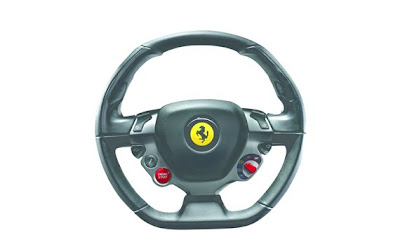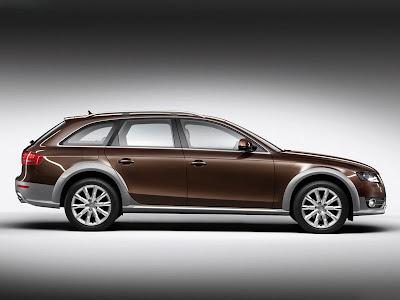With great fanfare, General Motors has introduced the 2010 Buick LaCrosse, a vehicle with which the automaker hopes to jump-start a sweeping brand transformation for the tired Tri-Shield. For Buick to be a success in GM's post-bailout, post-bankruptcy era, the brand must dump its well-deserved reputation as the preferred marque of last-time buyers. (Average age of previous-model LaCrosse buyer: Around 70.) For better or worse, as it scrambles to get more – and younger – drivers behind the wheel, Buick has elected to position itself as America's Lexus in a bid to give itself some premium cachet.
Frankly, that's a pretty tall order, but if first impressions mean anything, the Buick LaCrosse might be crowned GM's savior on appearances alone, because it's that attractive, especially compared to the fish-faced namesake it replaces. The 2009-and-prior LaCrosse looks like the unfortunate love child of a third-generation Ford Taurus and a Mitsuoka Orochi. Or, put plainly, it looks like some ugly Chinese car. By comparison, the 2010 LaCrosse is classy and stylish. Therein lies the delicious irony: the 2010 Buick LaCrosse's glitzy looks were, in fact, jointly developed with GM China's design team. Go figure, and be thankful. In the metal, this ride draws plenty appreciative stares.
Viewed in profile, the 2010 Buick LaCrosse's fast-looking roofline sweeps down into a short, high rear decklid. Acres of sheet metal reside under the greenhouse, and to mitigate the ensuing slab-sidedness, the designers employ a Lexus-style chrome strip along the bottom of the door panels along with a corresponding indent in the bodywork. What really breaks up the monotony, however, is the 21st-century version of the Buick sweep-spear, implemented here as a crease in the bodywork that turns the LaCrosse's chunkiness into a something a bit more voluptuous-looking. The LaCrosse CXL's chrome-finished, seven-spoke 18-inch wheels fill out the wells nicely, and the 19-inchers you get with the top-spec Lacrosse CXS would look better proportioned still.
Arched headlamps flank Buick's signature waterfall grille, and the lower bumper openings turn down into a frown at the corners. It makes for a sterner look than the bewildered, four-eyed face sported by the old LaCrosse. The hood ventiports on the new LaCrosse are also purely ornamental. Moving aft, tail lamps resembling chrome-edged flower petals finish off the rear end. From an exterior styling perspective, the new Buick LaCrosse drips curb appeal all over the sidewalk.
The good news continues with the swanky interior, elegantly decked out in a tasteful two-tone motif in the case of our tester. Material quality gets a solid thumbs-up, and GM goes so far as to add stitching to some of the soft-touch door and dash surfaces, making them look as though they're wrapped in leather, when in fact it's merely a visual sleight-of-hand. Don't laugh – it works. The front seats are comfortable and reasonably bolstered, but the best seats in the house may be one row back. At 40.5 inches, rear seat legroom is very good. That's more than the Pontiac G8 – no slouch in the department at 39.4 inches – just shy of the Toyota Avalon's 40.9 inches, and simply obliterates the 35.9 inches you'll get as a backseater in the Lexus ES350. If you don't get to ride shotgun in the LaCrosse, it's no penalty to be relegated to the back, where you can sit back and enjoy the quiet cabin in great comfort. Go ahead, cross your legs. You can.
A sweeping, beautifully-designed cockpit envelops the driver and front passenger in leather, attractive woodgrain and a variety of soft-touch surfaces. Beyond GM's new corporate steering wheel (leather-wrapped, heated and with woodgrain on top) is a padded binnacle shrouding the LaCrosse's attractive and unique tach and speedo gauges. Their ice blue illumination is further accented by cool ambient lighting that dresses up the instrument panel at night. The snazzy-looking layout layout stumbles a bit when your eyes land on the parts bin-special driver information and radio displays – similar to the ones you'll find in the Chevrolet Camaro, Equinox and GMC Terrain. They work fine and are eminently readable, but the look isn't as polished as, say, the audio display in the Cadillac CTS (or something in that general vein), whose higher-res presentation would better fit the premium theme GM says it's trying to get at with the revamped Buick.
The LaCrosse's center stack features the familiar, two-dial radio setup you expect to find in a GM car. Below the station preset keys, you'll find a total of 24 additional buttons, controlling various other audio and HVAC features. In daylight, the arrangement is a bit busy, but still usable. At night, however, it can be hard to discern what's what, as the area becomes a jumbled sea of little blue words and icons. One rainy evening, the windshield fogged up quickly and we spent more time looking down at the instrument panel for the proper buttons to make the adjustments than we would normally be comfortable with, particularly at highway speeds. The wheel-mounted cruise and radio controls work great, and there are enough station presets that we seldom needed to reach for the manual tuning dial at all.
While the LaCrosse's steep A-pillar angle helps make the car look great on the outside, it wreaks havoc on driver visibility, effectively blocking your view of any street you plan to turn left onto. Likewise, the rear view is compromised by the LaCrosse's high rear deck, which contributes to rearward visibility that's downright SUV-like. It's a trend that's maddening and unlikely to go away anytime soon. A standard-equipment rear-view camera, as GM offers on the cheaper GMC Terrain, would work wonders here. Alas, a cam is only available in the laCrosse if you order the stereo with nav system. Without it, backing out of a space in a crowded supermarket parking lot can become a white-knuckle affair, since little kids are obscured by the high rump.
Trunk space is actually pretty skinflint, especially for a big vehicle, at just 13.3 cubic feet. It's a shame, too, as the trunk itself is deeper than the short rear deck would suggest. We slid a stroller in lengthwise without even folding back the handle, and it fit with room to spare. The issue is that the usable area is sacrificed in the name of big, intrusive gooseneck hinges. The hinges are blocked off, so there's no danger of crushing your cargo, but the space they occupy would have added a sizable amount of cargo-carrying capacity had GM set up the trunk with struts instead. It's a missed opportunity. Yes, the Lexus ES uses a similar setup, but that's no excuse.
But our biggest disappointment came from the 252-horsepower and 215 pound-feet of torque provided by the direct-injected 3.0-liter V6 sitting under our all-wheel-drive LaCrosse CXL's clamshell hood. In this 4,196-pound car – yes, it's a porker – the 3.0-liter six is a leisurely performer at best and overmatched at worst. The middle-spec bent six is perfectly acceptable in around-town runabout duty, but when you come upon a situation demanding more power, like highway passing, frustration sets in as the oomph on tap is hardly on-demand. Flipping the six-speed auto into manual mode offers little relief; in our experience, it only served to make the faint noise emanating from beyond the firewall a little more audible, with no real difference in tangible forward momentum.
The 280-hp and 259 lb-ft of twist from the 3.6-liter V6 in the stepped-up LaCrosse CXS clearly seems like the better choice for this car, and we wish it's what we had when the LaCrosse paid its visit to our garage, but you also forego the option of all-wheel drive by opting for the top trim level. If you live in a region where you want the added confidence that four-wheel grip bestows in winter weather, you're stuck with the 3.0-liter. Given our experience with the 3.0-liter V6, the 2.4-liter four-cylinder that'll be available as an option in the base CX trim (the 3.0 V6 is standard) doesn't seem like something we would ever see ourselves going for.
In a separate aside, the mere presence of the LaCrosse CX, which comes with standard cloth seating and steel wheels, doesn't exactly jibe with the whole Lexus-alternative meme that the marketing department is working so hard to cultivate. Look for something like that at a Lexus store, and the salesman will gently direct you to his Camry-selling brethren across the street. Likewise, the LaCrosse CX seems like an equipment mix better suited to a Chevrolet dealership. Airport rental, anyone?
Behind the wheel, the LaCrosse's hydraulically-assisted steering delivers great overall response and feedback, but a smidge less power assistance would be more than welcome. On-center feel is good, and the sedan stays pointed where you want it without any vagueness or slop in the wheel. Dynamically, the Buick is competent if not exciting. Hell, it's actually pretty boring, which, when you consider that the Lexus ES is the named benchmark, is not necessarily a derogatory judgement. Sound isolation is excellent, engine noise is well-muted and if your local DOT isn't known for maintaining silky-smooth roads, the imperfections you drive over are swallowed up ably, with little more than muted thumps making themselves heard and felt inside. Best of all, the suspension delivers comfort without resorting to the wallowy feel that characterized "American luxury" for so long. Drive it hard into a corner, and the LaCrosse protests with understeer, but the reality is that it's not a car that begs to be driven hard in the first place. Refinement and good manners rule the day here, and the LaCrosse is at its best when you take it easy and let it coddle you.
In the end, we walked away from the 2010 Buick LaCrosse CXL impressed, but not completely blown away. If you're looking for excitement, you'll find it in the car's dazzling visual presentation, but its mild-mannered demeanor means it can be a bit of a snooze from behind the wheel. Then again, if the 2010 Buick LaCrosse is the American Lexus that GM so desperately wants it to be, maybe this blend of outward glitz and reserved composure is exactly what the doctor ordered. Time will tell.
[Source: Autoblog]










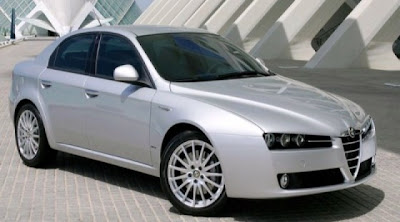
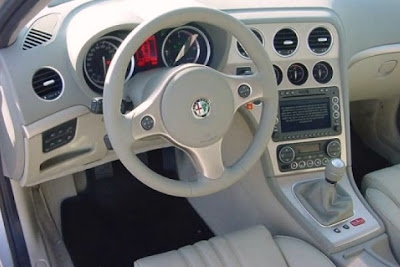
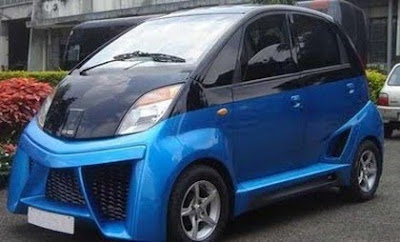





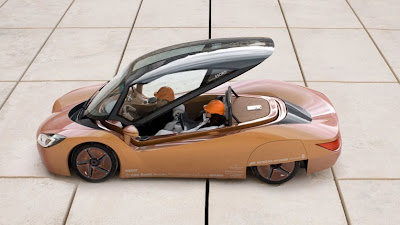



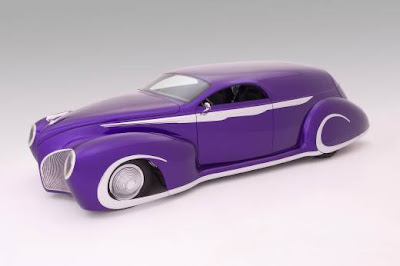
__520_346.jpg)
__520_347.jpg)
__520_346.jpg)
__520_346.jpg)
__520_346.jpg)
__520_346.jpg)
__520_346.jpg)
